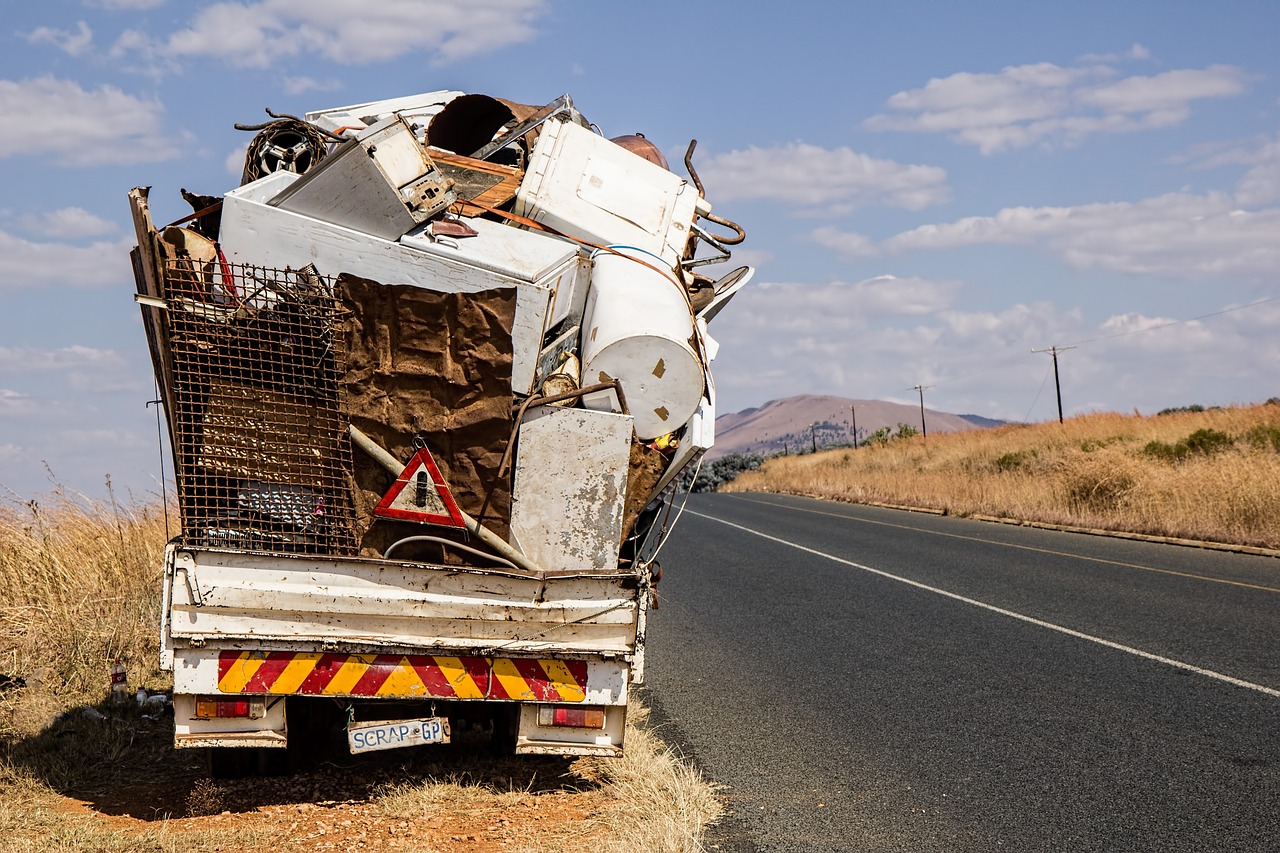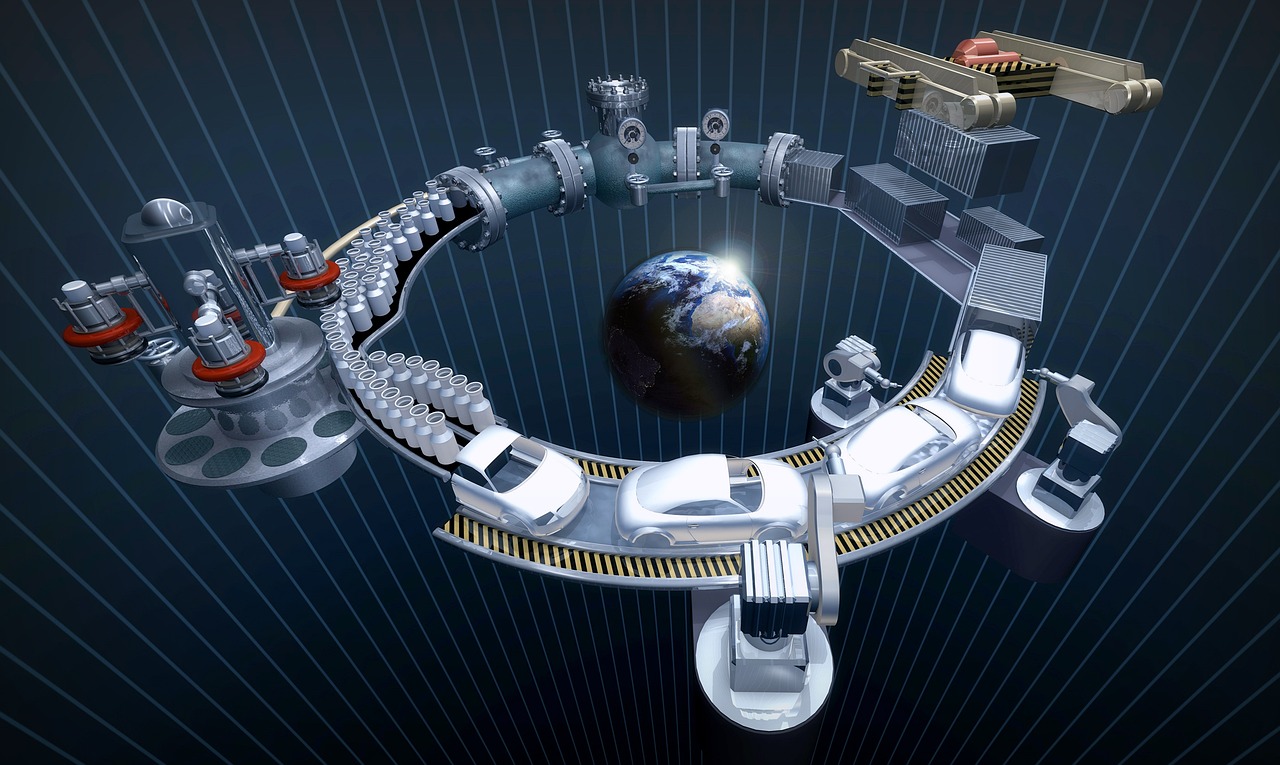The Importance of Recycling in Sustainable Community Development
Recycling is not just a buzzword; it’s a vital practice that can transform our communities into sustainable havens. Imagine a world where waste is minimized, resources are conserved, and communities thrive—this is the essence of recycling. In the face of growing environmental challenges, the importance of recycling in sustainable community development cannot be overstated. It serves as a bridge connecting environmental stewardship, economic growth, and social responsibility.
When we think about recycling, we often picture blue bins overflowing with plastic bottles and newspapers. However, recycling is much more than that. It’s about creating a circular economy where materials are reused and repurposed, reducing the need for new resources. By recycling, we not only cut down on the amount of waste that ends up in landfills but also play a significant role in conserving our planet’s precious resources. This leads to a healthier environment, which is crucial for the well-being of future generations.
Furthermore, recycling fosters a sense of community. When people come together to participate in recycling initiatives, they develop a shared purpose and responsibility towards their environment. This collective effort can strengthen community ties, making neighborhoods more resilient and engaged. The act of recycling becomes a community value, encouraging individuals to take pride in their surroundings and work together for a common goal.
In this article, we will delve deeper into the numerous benefits of recycling, including its environmental, economic, and social impacts. We will also explore effective practices and community engagement strategies that can help foster a culture of recycling. By understanding the importance of recycling, we can all contribute to building sustainable communities that thrive today and for generations to come.
- What materials can be recycled? Most communities accept paper, cardboard, glass, metals, and certain plastics. Always check local guidelines for specifics.
- How does recycling help the economy? Recycling creates jobs, reduces waste management costs, and can stimulate local economies by creating a market for recycled materials.
- What are some common challenges in recycling? Contamination of recyclable materials and public apathy are significant challenges that can hinder recycling efforts.
- How can I get involved in recycling initiatives? Look for local programs, participate in community clean-up events, and educate others about the importance of recycling.

Environmental Benefits of Recycling
Recycling is not just a trendy buzzword; it’s a vital practice that significantly impacts our environment. Imagine a world where waste is minimized, resources are conserved, and pollution levels drop dramatically. That’s the power of recycling! By transforming waste into reusable materials, recycling reduces the amount of garbage that ends up in landfills and incinerators, which is a win for our planet.
One of the most compelling environmental benefits of recycling is its ability to minimize pollution. When we recycle materials like paper, plastic, and metals, we decrease the need for new raw materials. This process leads to fewer emissions of harmful gases and pollutants that are typically released during the extraction and processing of virgin resources. For instance, recycling aluminum saves up to 95% of the energy required to produce new aluminum from bauxite ore, which means less air pollution and a smaller carbon footprint.
Additionally, recycling plays a crucial role in conserving our natural resources. Every time we recycle, we are effectively saving precious materials from being depleted. For example, recycling one ton of paper can save:
| Resource | Amount Saved |
|---|---|
| Water | 7,000 gallons |
| Energy | 4,100 kWh |
| Trees | 17 trees |
These statistics highlight just how impactful recycling can be. By reducing the demand for new materials, we not only preserve forests but also protect wildlife habitats, contributing to healthier ecosystems. Speaking of ecosystems, recycling helps maintain biodiversity by reducing the need to exploit natural habitats for resources, allowing flora and fauna to thrive.
Moreover, recycling saves energy, which is a significant factor in combating climate change. The energy saved from recycling can power homes and businesses, reducing reliance on fossil fuels. It’s like giving our planet a much-needed break! When we recycle, we are taking a stand against the depletion of our natural resources and fostering a more sustainable future.
In conclusion, the environmental benefits of recycling are profound. By minimizing pollution, conserving natural resources, and saving energy, recycling not only protects our planet but also ensures that future generations inherit a cleaner, healthier world. So, the next time you toss that plastic bottle into the recycling bin, remember: you are part of a larger movement towards sustainability!
- What materials can be recycled? Most common materials include paper, cardboard, glass, metals, and certain plastics. Always check local recycling guidelines for specifics.
- How does recycling help combat climate change? By reducing the need for new materials, recycling decreases energy consumption and greenhouse gas emissions, which are major contributors to climate change.
- Can recycling create jobs? Yes! The recycling industry creates a variety of jobs, from collection to processing, contributing to local economies.

Economic Impact of Recycling
The economic impact of recycling is nothing short of remarkable. It's like a hidden treasure chest waiting to be unlocked, offering a plethora of benefits that can significantly boost local economies. Recycling doesn't just help the environment; it also creates jobs, saves money, and promotes sustainable growth. Imagine a bustling community where waste isn’t just discarded but transformed into valuable resources. That’s the power of recycling!
One of the most compelling aspects of recycling is its ability to generate jobs. From the moment recyclables are collected to the time they are processed and repurposed, a variety of job opportunities arise. These can range from collection drivers and sorting facility workers to engineers and marketing professionals in the recycling sector. According to recent studies, the recycling industry supports over 1.1 million jobs in the United States alone, and that number continues to grow as more communities adopt sustainable practices.
Moreover, recycling has a significant economic ripple effect. When communities engage in recycling initiatives, they often see a reduction in waste management costs. Less waste means lower disposal fees and reduced strain on landfills. For instance, a community that implements a robust recycling program can save thousands of dollars annually on waste disposal. These savings can then be redirected into other essential services, such as education or infrastructure improvements, benefiting the entire community.
To illustrate the economic benefits further, consider the following table that outlines the potential savings and job creation associated with recycling initiatives:
| Recycling Initiative | Job Creation | Annual Savings |
|---|---|---|
| Single-Stream Recycling | 50 jobs | $100,000 |
| Composting Program | 30 jobs | $50,000 |
| Electronic Waste Collection | 20 jobs | $30,000 |
As evidenced by the table, different recycling initiatives not only create jobs but also yield substantial savings for local governments. This financial boost can enhance community facilities, fund public programs, or even lower taxes for residents, making it a win-win situation.
However, the economic impact of recycling extends beyond immediate job creation and savings. Recycling also fosters innovation and entrepreneurship. As communities embrace sustainable practices, new businesses emerge, focusing on recycling technologies, waste reduction strategies, and eco-friendly products. These businesses not only contribute to the local economy but also inspire a shift towards greener practices, creating a more sustainable future.
In conclusion, the economic impact of recycling is profound and multifaceted. It generates jobs, reduces costs, and stimulates local economies while paving the way for innovative business opportunities. By prioritizing recycling, communities can unleash a wave of economic benefits that lead to a more sustainable and prosperous future for all.
- What are the main economic benefits of recycling? Recycling creates jobs, reduces waste management costs, and stimulates local economies.
- How does recycling save money for communities? By decreasing the volume of waste sent to landfills, communities can lower disposal fees and redirect savings to other essential services.
- Can recycling programs lead to new business opportunities? Yes! Recycling initiatives can inspire innovation and the creation of new businesses focused on sustainable practices.

Job Creation through Recycling Initiatives
When we think about recycling, we often envision bins filled with plastic bottles and newspapers, but the impact of recycling extends far beyond just reducing waste. One of the most significant yet often overlooked benefits of recycling initiatives is the job creation they foster within communities. By investing in recycling programs, communities can unlock a treasure trove of employment opportunities that not only provide livelihoods but also contribute to the local economy's vitality.
Recycling initiatives create a wide array of jobs across different sectors. From collection and sorting to processing and marketing, each step in the recycling chain requires a workforce. For example, curbside collection programs necessitate drivers and waste management personnel, while recycling facilities need operators, technicians, and administrative staff. This diverse range of roles means that recycling can cater to various skill levels, offering opportunities for both unskilled workers and those with specialized training.
Moreover, the economic ripple effect of job creation in the recycling sector is profound. According to a recent study, for every job in recycling, approximately 1.17 jobs are created in the manufacturing sector. This means that as recycling programs expand, they can lead to increased demand for materials that are recycled into new products, further stimulating job creation in manufacturing and related industries. This interconnectedness not only bolsters the job market but also promotes a circular economy where materials are reused, reducing the need for virgin resources.
Additionally, recycling initiatives often lead to the development of green jobs, which focus on sustainability and environmental protection. These jobs are crucial in combating climate change and promoting eco-friendly practices. The rise of green jobs in recycling is a testament to how environmental responsibility can align with economic growth. For instance, positions in research and development for new recycling technologies are on the rise, showcasing how innovation in this sector can lead to job creation while addressing pressing environmental challenges.
However, it’s essential to recognize the potential challenges in job creation through recycling initiatives. Factors such as public apathy, contamination of recyclable materials, and insufficient funding can hinder the effectiveness of these programs. Communities need to address these challenges proactively by investing in education and outreach to raise awareness about the importance of recycling and its economic benefits. By engaging residents and fostering a sense of ownership, communities can increase participation in recycling programs, ultimately leading to more job opportunities.
In conclusion, the job creation potential of recycling initiatives is a powerful motivator for communities to invest in these programs. By recognizing the multifaceted benefits of recycling, including its ability to generate employment, stimulate local economies, and promote sustainability, communities can work towards building a brighter, greener future. As we continue to navigate the complexities of waste management and environmental conservation, it becomes increasingly clear that recycling is not just an environmental necessity but also a vital economic opportunity.
- What types of jobs are created through recycling initiatives? Jobs can range from collection and sorting to processing and marketing recyclable materials.
- How does recycling contribute to the local economy? Recycling initiatives stimulate job creation, reduce waste management costs, and promote the manufacturing of recycled products.
- What challenges do recycling programs face in creating jobs? Challenges include public apathy, contamination of materials, and funding issues which can hinder participation and effectiveness.
- How can communities increase participation in recycling programs? By investing in education and outreach, communities can raise awareness and foster a sense of ownership among residents.

Community Engagement in Recycling Programs
Engaging community members in recycling programs is not just beneficial; it's essential for fostering a culture of sustainability. When people feel a sense of ownership and responsibility towards their community, they are more likely to participate actively in recycling initiatives. Think about it: if you see your neighbors getting involved, it creates a ripple effect that encourages others to join in. This communal spirit transforms individual actions into a collective movement, amplifying the impact of recycling efforts.
One effective strategy for enhancing community engagement is through the organization of local events centered around recycling. These can include community clean-up days, recycling drives, or educational workshops. By creating fun and interactive experiences, residents are more inclined to learn about the benefits of recycling and how to do it correctly. For instance, hosting a friendly competition between neighborhoods can spark excitement and motivate residents to recycle more. Imagine the thrill of your block winning the title of "Most Eco-Friendly Neighborhood"!
Additionally, social media platforms can serve as powerful tools for promoting recycling initiatives. By sharing success stories, tips, and upcoming events, communities can keep the momentum going. A dedicated Facebook group or Instagram page can foster a sense of community, where residents can share their recycling achievements, ask questions, and support each other. It’s all about creating an engaging narrative that keeps recycling at the forefront of community discussions.
Moreover, involving local schools can have a profound impact on long-term recycling habits. Educational programs designed for students not only inform the younger generation about the importance of recycling but also empower them to take action. Schools can implement recycling contests, where students bring in recyclable materials for points, teaching them the value of recycling in a fun and engaging way. This approach not only cultivates responsible habits among children but also encourages families to participate, as kids often influence their parents' behaviors.
To effectively track the success of community engagement efforts, it’s essential to collect data on participation rates and recycling volumes. This can be done through surveys or by monitoring recycling bin contents. By analyzing this data, communities can identify areas for improvement and celebrate their successes. For instance, if a particular neighborhood shows a significant increase in recycling rates, it’s important to highlight this achievement and recognize those involved. Celebrating milestones fosters a sense of pride and encourages continued participation.
In conclusion, community engagement in recycling programs is a multifaceted approach that requires creativity, collaboration, and commitment. By utilizing local events, social media, educational programs, and data tracking, communities can cultivate a vibrant recycling culture that not only benefits the environment but also strengthens social bonds among residents.
- Why is community engagement important in recycling programs?
Community engagement is crucial because it fosters a sense of ownership and responsibility, leading to higher participation rates and a stronger culture of sustainability. - How can social media be used to promote recycling?
Social media can be used to share success stories, promote events, and create a community dialogue around recycling, encouraging more residents to get involved. - What role do schools play in recycling initiatives?
Schools can educate students about recycling, instill responsible habits, and encourage family participation through engaging programs and competitions. - How can communities measure the success of their recycling programs?
Communities can track participation rates and recycling volumes through surveys and monitoring bin contents, allowing them to celebrate successes and identify areas for improvement.

Innovative Recycling Technologies
In today's rapidly evolving world, are at the forefront of efforts to enhance the efficiency and effectiveness of recycling processes. These technologies not only streamline operations but also tackle some of the most pressing challenges faced by recycling programs, such as contamination and low participation rates. Imagine a world where waste is transformed into valuable resources with minimal effort—this is the promise of modern recycling technologies.
One of the most exciting advancements in recycling is the development of automated sorting systems. These systems utilize artificial intelligence and machine learning algorithms to identify and separate different types of materials with incredible accuracy. For instance, optical sorting machines can detect various plastics and metals, ensuring that recyclables are processed correctly. This not only reduces contamination rates but also increases the overall quality of recycled materials, making them more desirable in the marketplace.
Moreover, the emergence of chemical recycling technologies is a game changer. Unlike traditional mechanical recycling methods that often degrade the quality of materials, chemical recycling breaks down plastics into their original monomers. This means that even the most challenging plastics can be recycled indefinitely without losing their integrity. Imagine being able to turn a used plastic bottle back into a pure form of plastic, ready to be molded into new products. This revolutionary approach could significantly reduce the amount of plastic waste ending up in landfills and oceans.
Furthermore, biorecycling is gaining traction as a sustainable method for managing organic waste. By utilizing microorganisms to break down organic materials, this technology not only reduces waste but also produces valuable byproducts such as biogas and compost. This process mirrors nature's own recycling system, turning what would typically be discarded into useful resources that can enrich the soil and provide renewable energy. Communities that adopt biorecycling can significantly lessen their environmental footprint while promoting a circular economy.
As we embrace these innovative technologies, it’s essential to consider their integration into existing recycling programs. Communities can facilitate this transition by investing in infrastructure and providing training for workers to operate new systems effectively. By fostering partnerships between local governments, businesses, and technological innovators, we can create a robust recycling ecosystem that benefits everyone.
In conclusion, the future of recycling is bright, thanks to innovative technologies that promise to revolutionize the way we think about waste. By embracing these advancements, communities can not only improve their recycling rates but also contribute to a more sustainable future. It’s time to harness the power of technology to transform our waste into valuable resources, ensuring a cleaner and healthier planet for generations to come.
- What are the main benefits of innovative recycling technologies? These technologies improve efficiency, reduce contamination, and enhance the quality of recycled materials.
- How does chemical recycling differ from traditional recycling? Chemical recycling breaks down plastics into their original components, allowing for indefinite recycling without quality loss, unlike traditional methods.
- What role does community engagement play in adopting these technologies? Community engagement is crucial for successful implementation, as it ensures that residents understand and participate in new recycling programs.
- Can biorecycling help in reducing food waste? Yes, biorecycling effectively manages organic waste and converts it into useful resources, reducing food waste significantly.

Challenges in Recycling Practices
Recycling is undoubtedly a vital component of sustainable community development, but it’s not without its hurdles. One of the most significant challenges we face is contamination. This occurs when non-recyclable materials are mixed in with recyclables, which can spoil entire batches of collected materials. Imagine sorting through a pile of recyclables only to find pizza boxes, plastic bags, or other contaminants; it’s frustrating and costly. Contamination rates can vary widely by community, often leading to increased costs and reduced efficiency in recycling programs.
Another major challenge is public apathy. In many communities, residents may not fully understand the importance of recycling or may feel that their individual efforts won't make a significant impact. This lack of motivation can lead to lower participation rates, which ultimately hampers the effectiveness of recycling initiatives. It’s like trying to fill a bucket with water while leaving the tap running; without consistent effort from everyone, the bucket will never be full.
Furthermore, infrastructure limitations can impede recycling efforts. Not all communities have access to the necessary facilities or services to process recyclables effectively. For instance, rural areas may lack the collection services or recycling centers that urban areas have, making it difficult for residents to participate in recycling programs. This disparity can create a sense of inequality and frustration among community members.
To address these challenges, communities can adopt several strategies:
- Education and Awareness: Implementing educational programs can help residents understand what can and cannot be recycled, reducing contamination rates.
- Incentive Programs: Offering incentives for recycling, such as discounts on utility bills or rewards for participation, can motivate residents to engage more actively.
- Improved Infrastructure: Investing in better recycling facilities and collection services can enhance participation and efficiency.
In conclusion, while the challenges in recycling practices may seem daunting, they are not insurmountable. By fostering a culture of awareness, providing the necessary resources, and engaging the community, we can overcome these obstacles and create a more sustainable future for all.
Q: What is contamination in recycling?
A: Contamination occurs when non-recyclable items are mixed in with recyclables, which can spoil entire batches and lead to increased costs and inefficiencies in recycling programs.
Q: How can I reduce contamination in my recycling?
A: To reduce contamination, ensure you only place accepted materials in your recycling bin and familiarize yourself with your local recycling guidelines.
Q: What are some incentives for recycling?
A: Communities may offer incentives such as discounts on utility bills, rewards programs, or community competitions to encourage recycling participation.
Q: Why is public engagement important for recycling?
A: Public engagement is crucial because it fosters a sense of ownership and responsibility among residents, leading to higher participation rates and more effective recycling programs.

Social Benefits of Recycling
Recycling is not just about collecting materials and processing them; it plays a pivotal role in enhancing the social fabric of communities. When individuals come together to recycle, they are not merely participating in a waste management program; they are engaging in an activity that fosters community pride and strengthens social ties. Imagine a neighborhood where residents take turns organizing recycling drives or educational workshops. This collective effort creates a sense of belonging and responsibility that transcends mere environmental concern.
One of the most profound social benefits of recycling is its ability to promote environmental stewardship. When people actively participate in recycling initiatives, they become more aware of environmental issues and the impact of their actions. This awareness often leads to a ripple effect, where individuals not only recycle but also adopt other sustainable practices, such as reducing waste and conserving energy. It’s like planting a seed of sustainability that grows into a flourishing tree of community engagement.
Moreover, recycling initiatives can serve as a platform for community engagement. Local events such as recycling fairs or clean-up days not only educate residents about the importance of recycling but also provide opportunities for social interaction. These gatherings can lead to new friendships and partnerships, as people from diverse backgrounds come together for a common cause. The social connections formed during these activities can be incredibly valuable, creating networks of support that extend beyond recycling.
To illustrate the impact of recycling on community cohesion, consider the following table that highlights various social benefits:
| Social Benefit | Description |
|---|---|
| Community Pride | Increased sense of belonging and ownership over local environmental efforts. |
| Environmental Awareness | Heightened understanding of sustainability issues and personal responsibility. |
| Social Interaction | Opportunities for residents to meet, collaborate, and form lasting relationships. |
| Support Networks | Creation of community support systems that extend beyond recycling initiatives. |
In addition to these benefits, educational programs about recycling can significantly enhance community involvement. By teaching residents about the importance of recycling and how to do it effectively, communities can cultivate a culture of sustainability. For example, workshops that explain how to sort recyclables correctly can reduce contamination rates, ensuring that more materials are successfully recycled. These programs not only inform but also empower individuals to take action, leading to a more engaged and environmentally conscious community.
Building a recycling culture requires consistent effort and commitment from all community members. It’s not just about having the right bins; it’s about fostering an environment where recycling is seen as a norm rather than an obligation. When recycling becomes a part of the community's identity, it encourages ongoing participation and enthusiasm. This cultural shift can be likened to a wave that, once started, continues to gain momentum as more individuals join in.
In conclusion, the social benefits of recycling extend far beyond environmental impact. They encompass community pride, social interaction, and a collective commitment to sustainability. By engaging in recycling practices, communities can create a strong, interconnected network of residents who are not only aware of their environmental responsibilities but also take active steps to fulfill them. This sense of unity and shared purpose can lead to a healthier, more vibrant community for everyone.
- What are the main social benefits of recycling? Recycling fosters community pride, enhances environmental awareness, and promotes social interaction among residents.
- How can communities engage residents in recycling initiatives? Organizing events, educational workshops, and creating support networks are effective ways to engage residents.
- Why is education important in recycling efforts? Education helps residents understand the importance of recycling and how to do it correctly, which can improve participation rates.

Educational Programs on Recycling
Education plays a vital role in fostering a culture of recycling within communities. By implementing educational programs, we can significantly enhance public awareness about the importance of recycling and the impact it has on our environment. These programs can take various forms, from in-school initiatives to community workshops, and they aim to equip residents with the knowledge and skills necessary to participate actively in recycling efforts.
For instance, schools can introduce interactive lessons that engage students in hands-on activities, such as sorting recyclable materials or creating art projects from recycled items. This not only makes learning fun but also instills a sense of responsibility towards the environment from a young age. Additionally, community centers can host workshops that teach residents how to properly recycle, explaining the differences between recyclable and non-recyclable materials. Such initiatives help demystify the recycling process and encourage participation.
Furthermore, leveraging technology can amplify the reach and effectiveness of educational programs. Online platforms can offer webinars and virtual workshops, making it easier for people to access information regardless of their location. Social media campaigns can also play a crucial role in spreading awareness, using engaging content to highlight the benefits of recycling and share success stories from local initiatives.
To measure the impact of these educational programs, communities can track participation rates and conduct surveys to assess changes in recycling behavior. This data can be invaluable for refining programs and ensuring they meet the needs of the community. Ultimately, by prioritizing education, we can cultivate a generation that values sustainability and actively contributes to a healthier planet.
- What types of educational programs are most effective for teaching recycling?
Programs that incorporate hands-on activities and real-life applications tend to be the most effective, as they engage participants and help them understand the practical aspects of recycling. - How can technology enhance recycling education?
Technology can provide broader access to educational resources through online courses, webinars, and social media campaigns that raise awareness and promote best practices. - What role do schools play in recycling education?
Schools are crucial in shaping young minds and can integrate recycling education into their curricula, fostering a sense of environmental responsibility among students.

Building a Recycling Culture
Building a strong recycling culture within a community is akin to planting a seed and nurturing it until it blossoms. It requires consistent effort, commitment, and the collective will of everyone involved. To truly embed recycling into the fabric of community life, we must first understand that it’s not merely about placing bins on the street; it’s about creating a mindset that values sustainability and environmental stewardship.
One of the most effective ways to foster a recycling culture is through community engagement. When residents feel involved and informed, they are more likely to participate actively in recycling initiatives. This engagement can take many forms, such as workshops, local events, and school programs that educate the community about the importance of recycling. For instance, organizing neighborhood cleanup days can not only promote recycling but also strengthen community bonds. Imagine a Saturday morning where families come together, equipped with gloves and bags, transforming littered parks into clean, green spaces. This shared experience can ignite a passion for recycling that lasts long after the event.
Moreover, the role of local governments and organizations is crucial in this endeavor. They can lead by example, implementing comprehensive recycling programs and providing the necessary resources. Regular communication through newsletters, social media, and community boards can keep recycling at the forefront of community discussions. For instance, a monthly newsletter could highlight the amount of materials recycled, the impact on the environment, and upcoming recycling events. This transparency not only informs residents but also instills a sense of pride in their contributions.
Another vital aspect of building a recycling culture is addressing the barriers that prevent people from participating. Many individuals may feel overwhelmed by the complexities of recycling or unsure of what can and cannot be recycled. To combat this, communities can develop clear guidelines and provide visual aids, such as posters or infographics, that simplify the recycling process. For example, a simple table outlining recyclable materials versus non-recyclable ones can serve as a quick reference for residents:
| Recyclable Materials | Non-Recyclable Materials |
|---|---|
| Paper and Cardboard | Pizza Boxes |
| Plastics #1 and #2 | Plastic Bags |
| Glass Bottles and Jars | Broken Glass |
| Metals (Aluminum, Steel) | Foil Food Containers |
Additionally, fostering a culture of recycling can be enhanced through incentive programs. Communities can introduce reward systems for households that consistently recycle correctly. This could be in the form of discounts on utility bills or entry into local raffles. Such initiatives not only motivate participation but also create a friendly competition among residents to see who can recycle the most effectively.
Finally, it’s essential to recognize and celebrate the efforts of individuals and groups who champion recycling within the community. Highlighting their stories in local media or at community events can inspire others to follow suit. When people see their neighbors making a difference, they are more likely to jump on the bandwagon. It’s about creating a ripple effect where one person’s action inspires another’s, ultimately leading to a community that values and practices recycling as a way of life.
In conclusion, building a recycling culture is a multifaceted approach that involves education, engagement, and recognition. By working together and implementing effective strategies, communities can cultivate an environment where recycling becomes second nature, ensuring a sustainable future for generations to come.
- Why is recycling important for my community? Recycling reduces waste, conserves natural resources, and minimizes pollution, contributing to a healthier environment.
- How can I get involved in local recycling efforts? Participate in community events, advocate for better recycling programs, and educate yourself and others about recycling practices.
- What are the most common mistakes people make when recycling? Contamination of recyclable materials and not knowing what can be recycled are common issues that can hinder recycling efforts.
- How can schools contribute to building a recycling culture? Schools can implement educational programs, organize recycling competitions, and involve students in community recycling initiatives.
Frequently Asked Questions
- Why is recycling important for the environment?
Recycling plays a crucial role in reducing waste and conserving natural resources. By recycling materials like paper, plastic, and metals, we can significantly minimize pollution, save energy, and help preserve ecosystems. This means a healthier planet for future generations and less strain on our natural resources.
- How does recycling benefit the economy?
The recycling industry generates substantial economic benefits, including job creation and cost savings. Recycling initiatives can stimulate local economies by creating a variety of jobs, from collection to processing. Additionally, they help reduce municipal waste management expenses, allowing cities to allocate resources to other essential services.
- What types of jobs are created through recycling initiatives?
Recycling programs create diverse job opportunities, including positions in collection, sorting, processing, and education. These jobs are vital for supporting local economies and can range from manual labor to technical roles in recycling facilities, thereby contributing to community development.
- How can communities engage residents in recycling programs?
Engaging community members in recycling efforts can foster a sense of ownership and responsibility. Successful strategies include hosting community events, providing educational resources, and creating incentives for participation. By making recycling a community-wide effort, residents are more likely to embrace sustainable practices.
- What are some innovative technologies in recycling?
Advancements in recycling technologies have significantly enhanced efficiency and effectiveness. Emerging technologies focus on improving sorting processes, reducing contamination rates, and increasing the quality of recycled materials. These innovations ultimately benefit communities by making recycling more accessible and effective.
- What challenges do recycling programs face?
Despite its benefits, recycling faces challenges such as contamination and public apathy. Contamination occurs when non-recyclable materials are mixed with recyclables, leading to increased costs and inefficiencies. To improve recycling rates, communities must address these obstacles through education and clear guidelines for residents.
- How does recycling promote social cohesion?
Recycling fosters community pride and strengthens social bonds among residents. When people work together towards a common goal, like improving recycling rates, it promotes environmental stewardship and a sense of belonging. Collective efforts can enhance community engagement and create a culture of sustainability.
- What role does education play in recycling?
Education is vital for promoting recycling awareness and participation. Effective educational programs teach residents about the importance of recycling, how to recycle properly, and the impact of their actions on the environment. By raising awareness, communities can cultivate a culture of recycling that lasts.
- How can we build a culture of recycling in our community?
Creating a culture of recycling requires consistent effort and commitment. Strategies include regular community workshops, challenges, and engaging local leaders to champion recycling initiatives. By instilling recycling habits in community members, we can ensure long-term sustainability and environmental responsibility.



















